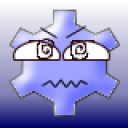2 Answers
GOAL
Provide a change of focus by allowing everyone to think they are the source of the family’s problems
PURPOSE
For Self: take on the ‘bad-guy’ role to protect the addict or other main trouble-maker from having to face his/her pain, their sacrifice given as a love-offering
For Family: serve as the “pressure valve” in the family when tension builds. They misbehave to draw attention away from the ‘problem’ parent so the family’s problems is anything other than the addiction.
• To protect the family from any outside interference (cops, social workers, shrinks, social services….) & to prevent change. They act out the tension & anger everyone ignores, doing things the ‘wrong way’, to show family what’s really going on hoping they’ll can learn from it
BIRTH ORDER: Usually the second child, sometimes the first boy if an older sister is the Hero
IN SCHOOL
Academically borderline or failing, they drop out, get suspended or kicked out, may not graduate
FAMILY TREATMENT
The family makes them the ‘black sheep’ & then feels ashamed of them. They’re compared negatively to older siblings & may be taken to therapy to get ‘fixed’. Targeted to be Scapegoats, either because they’re:
a type: hyperactive or sick, so are easily bullied, and/OR
b type: the angry, rebellious, problem child who has the guts to say or do what no one else will, & so is easily ‘set off’ / reactive
ACTIONS /STYLE
Personal: They are the most sensitive, caring & emotionally honest family member. Scapegoats are actually the strongest ones, since they carry the “sins” for the entire family. Their sensitivity causes them intense pain when mistreated, making them self-hating & self-destructive. They are a romantic who becomes very cynical & distrustful from being the “target” of the family’s dysfunction
Social:
Often act out in front of others, putting on a tough act. They’re the troublemaker, disruptive, intrusive, argumentative, unwilling to take responsibility, attention seekers, negative leaders, verbally dishonest, blaming others, secretive, sneaky. Rebellious (constant trouble with authority, won’t follow directions), make a lot of noise, diverting attention from the addict & his/her need for Recovery on to themselves. Try to compete with the Hero for status, but lose & then stop trying to please
DEFENSES
Defiance, withdrawal, hostility, sullenness, acting out, ‘don’t care’ facade. Strong connection to their peer group (same type) or totally isolate
DEFICITS
Inappropriate expression & use of anger, intrusive, won’t follow directions, self-destructive, defiant, irresponsible, underachiever, social & legal problems at young age (truancy, teenage pregnancy, high school dropout, addiction, suicide attempts), can lead others into trouble
BELIEFS:
From: “I’m angry about it, whatever it is”
“If I scream loudly enough, someone may notice me.”
“Take what you want. No one is going to give you anything.”
To: “I can ask for what I want, & listen to others at the same time”
“While my needs are important, others’ needs are to be considered too”
“The world is not our to get me. I am not here alone”
EMOTIONS
Lonely, fearful, inadequate, self-hating, frustrated, empty, hurt, hopeless, guilty, shows shame via rage, addictions, procrastination. Feel left out of family & like a misfit, desire positive attention but can’t ask for it
COST TO SELF
• Not allowed to be successful, respected, admired. Unaware of emotions other than rage. Denies self legitimate opportunities, accomplishments & success or the ability to connect with others in a genuine way, can’t live peacefully
• DANGER: If addict is confronted while this child still lives at home, Scapegoat is likely to try suicide in order to shift the focus away from the sufferer
PARENTS can HELP CHILD
To: Disengage the child from the power struggles, express anger safely, have an outlet for their sensitivity & generosity
By: being calm, avoiding expressing shock or disgust, let the child experience consequences of behavior, give opportunities to use power appropriately & outlets for helping the underdog. be fair but firm
AS ADULTS
a. Acting out — Live on the edge of society or are complete outcasts. With little education or skill they continue to rebel, but in more sophisticated & dramatic ways: have illegitimate children, graduate to felonies, suffer with mental illness & addictions. Are confrontational, argumentative, have problems with rage, trust & authority
b. Victims — live out the scapegoat position: frequently the underdog in relationships and situations, marry early, stay in long-term abusive relationships, are everyone’s doormat, plagued by depression & addictions
• They carrying around resentments as a result of the hurt, rejection, blaming & shaming they experienced at home (& school). May be aware of the sacrifices they’ve made & resent it
? HOWEVER – Because of their emotional honesty they are the one most likely to seek counseling, realize the dysfunction they grew up with face it. They may get help for problems with drugs, alcohol, verbal aggression or violence, trouble functioning at work or school, issues with authority & relationships
Adult RECOVERY NEEDS
• identify, own & work through the anger to get to the enormous hurt, sorrow & loneliness underneath
• learn problem solving skills & negotiating instead of rebelling or fighting
• achieve chemical & emotional sobriety
• speak ones inner truth, allow self to be a positive leader
STRENGTHS
• They have less denial & good insight, the ability to see reality, more straightforward, aware of their emotions
• Can read people, have lots of friends, adapt easily, lead an exciting life, take risks, a great sense of humor and fun-loving
• Courageous, creative, & when healthy, the ability to lead positively
http://acoarecovery.wordpress.com/2011/06/06/scapegoat-family-role/
| 12 years ago. Rating: 4 | |
In the children of alcoholic parents there is always representation as follow: Hero child, Middle child, Artistic child and the Scapegoat child. They can be combined or spread out among however many kids. We had 5 kids in my family.......
| 12 years ago. Rating: 3 | |

 goombaa
goombaa
 country bumpkin
country bumpkin




